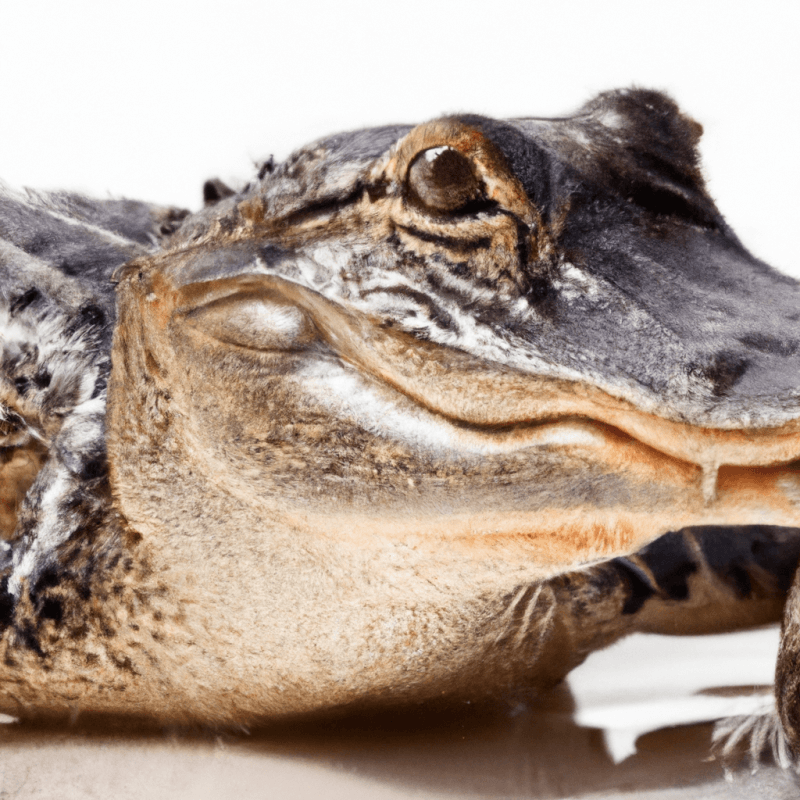Have you ever considered the idea of owning a pet alligator? It might sound like a wild and unconventional choice, but as the name suggests, this article will explore the question of whether it is safe to have an alligator as a pet. We will uncover some surprising facts and considerations that might just change your perspective on these fearsome creatures. So, grab a cup of tea, sit back, and let’s jump into the world of pet alligators!
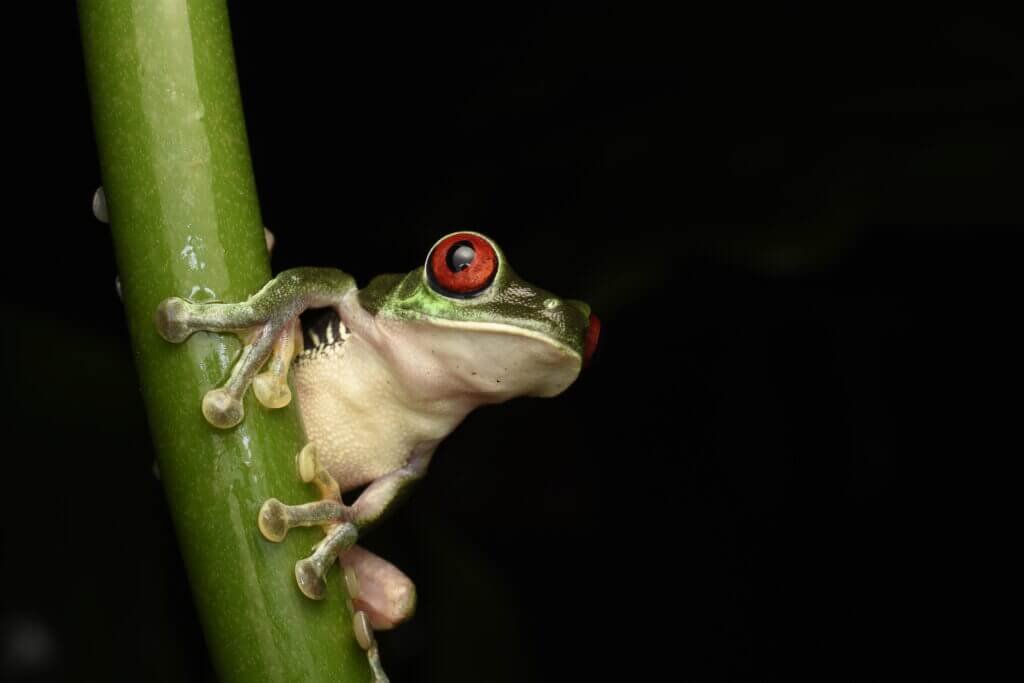
Factors to Consider Before Owning a Pet Alligator
Expert Opinion on Keeping Alligators as Pets
When considering owning a pet alligator, it is crucial to seek expert opinion. Professionals in the field of reptile care and wildlife conservation strongly advise against keeping alligators as pets. Alligators are a species that thrives in their natural habitat, and attempting to domesticate them can lead to serious risks and challenges.
Ready for Cat Trivia?
Test your knowledge about cats!

Understanding Alligator Behavior
To make an informed decision about owning a pet alligator, it is essential to understand their behavior. Alligators are large, powerful reptiles that exhibit territorial and aggressive behaviors. They are known to be unpredictable, and their natural instincts make them potential risks for causing harm. Understanding the behavior of alligators helps to grasp the potential challenges that come with owning them.
Licensing and Legal Requirements
Before considering owning a pet alligator, it is crucial to research and understand the licensing and legal requirements in your area. Alligators are protected species in many regions, making it illegal to own or keep them without the appropriate permits. Failure to adhere to these regulations can result in legal consequences.
Financial Considerations
Owning a pet alligator comes with significant financial responsibilities. The initial cost of purchasing an alligator can vary, but it is important to note that the expenses do not end there. Maintaining an alligator’s proper habitat, providing them with appropriate food, and regular veterinary care can be quite expensive. Adequate financial planning is necessary to ensure the comfort and well-being of the alligator.
Time and Commitment
Alligators require an immense amount of time and commitment from their owners. These reptiles have specific needs, such as a suitable enclosure, proper feeding, and regular social interaction. A pet alligator requires daily care and attention, which can be demanding and time-consuming. It is important to evaluate whether you have the time and dedication necessary to meet these needs.
Availability of Proper Facilities and Enclosures
Another crucial factor to consider is the availability of proper facilities and enclosures for a pet alligator. Alligators need spacious enclosures that mimic their natural habitat, which should include access to water, UV lighting, and appropriate substrate for their comfort. Ensuring a safe and secure environment for the alligator is vital to its well-being.
Potential Health Risks
Owning a pet alligator poses potential health risks for both the owner and the alligator itself. Alligators can carry zoonotic diseases that can be transmitted to humans, making proper hygiene and handling practices essential. Additionally, providing specialized veterinary care for alligators can be challenging and might not be readily available in all areas.
Possible Social and Ethical Implications
Keeping an alligator as a pet raises social and ethical concerns. Alligators are wild animals that are best suited to their natural habitat, where they contribute to ecosystem balance. Removing them from their natural environment for personal enjoyment can negatively impact conservation efforts. Ethically, it is important to question whether keeping a wild animal as a pet aligns with responsible and compassionate treatment of animals.
Alligator Behavior and Natural Habitat
Characteristics and Behavior of Alligators
Alligators are fascinating creatures with unique characteristics and behaviors. They are large reptiles with a robust body, strong jaws, and a powerful tail. Alligators are known for their ability to camouflage, making them skilled predators in water environments. Their natural instincts include territoriality and aggression, which can pose challenges when trying to domesticate them.
Adaptations for Survival
Alligators have evolved adaptations that allow them to thrive in their natural habitat. Their physical attributes, such as sharp teeth, strong jaws, and armored bodies, enable them to catch prey effectively and defend themselves against potential threats. Alligators also have an extraordinary ability to regulate their body temperature by basking in the sun or seeking shade, depending on their needs.
Natural Habitat of Alligators
Alligators primarily inhabit freshwater environments, such as swamps, marshes, rivers, and lakes. These areas provide them with access to food sources, suitable nesting grounds, and water for swimming. Alligators play an important role in the ecosystem by controlling populations of other species and contributing to nutrient cycling.
Alligator-Owner Relationship
Given their natural behavior and adaptations, it is important to consider the dynamics of the alligator-owner relationship. While alligators can form some level of bond with their owners, it is important to remember that they are ultimately wild animals. The relationship between an alligator and its owner can never completely erase the inherent risks and challenges associated with keeping such a powerful and unpredictable creature as a pet.
Expert Opinion on Keeping Alligators as Pets
Views of Experts on Alligator Ownership
Experts in the field of reptile care and wildlife conservation overwhelmingly discourage individuals from owning alligators as pets. Their expertise and firsthand experiences indicate that alligator ownership is both challenging and inherently risky. Experts emphasize the importance of protecting and preserving alligators in their natural habitats and promoting responsible pet ownership by choosing appropriate and safer alternatives.
Risks and Dangers Associated with Pet Alligators
Pet alligators pose significant risks and dangers, both to their owners and the broader community. Alligators can be highly aggressive and territorial, potentially causing serious harm to individuals and other animals. The unpredictable nature of these reptiles only adds to the level of risk involved in keeping them. It is vital to consider the potential consequences and dangers before pursuing alligator ownership.
Alternatives to Owning Alligators as Pets
For those fascinated by reptiles but wary of the risks associated with alligators, there are plenty of alternatives to consider. Visiting reptile sanctuaries, zoos, and educational programs allows individuals to learn about alligators and other exotic reptiles without the responsibilities and risks of ownership. Additionally, volunteering or supporting wildlife conservation organizations helps contribute to the preservation of these incredible creatures in their natural habitats.
Legal Requirements and Licensing
Importance of Understanding Local Laws and Regulations
Before embarking on the journey of owning a pet alligator, it is crucial to thoroughly research and understand the local laws and regulations related to their ownership. Alligators are protected species in many jurisdictions, and owning them without the appropriate permits and licenses can result in legal repercussions. By understanding the laws, potential owners can ensure compliance and avoid unnecessary legal complications.
Licensing and Permitting Process for Alligator Ownership
Acquiring the necessary licenses and permits for alligator ownership typically involves a stringent process. It may include demonstrating proper knowledge of alligator care, proving the ability to meet the specific housing requirements, and providing evidence of financial stability to support the alligator’s needs. These licensing and permitting processes aim to safeguard the well-being of the animal and protect the community from potential dangers.
Ensuring Compliance with Animal Welfare Laws
Owning a pet alligator requires understanding and complying with animal welfare laws and regulations. These laws establish minimum standards of care to ensure the physical and psychological well-being of animals. Proper nutrition, veterinary care, and mental stimulation are crucial aspects of meeting these requirements. It is imperative to prioritize the welfare of the alligator and understand the responsibilities involved in providing proper care.
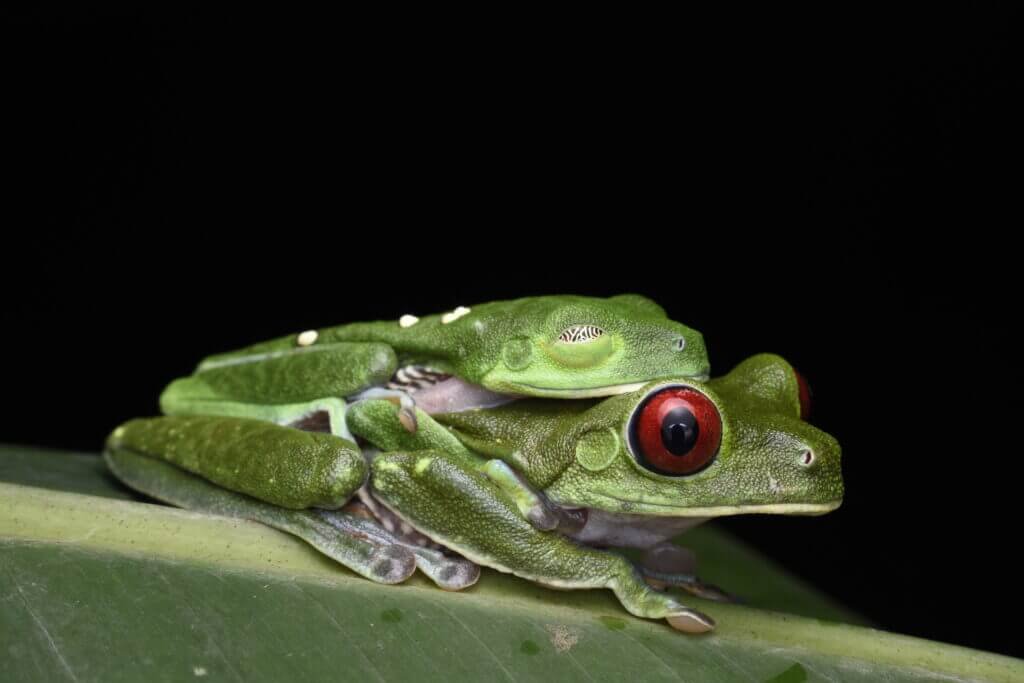
Financial Considerations of Owning a Pet Alligator
Costs of Purchasing an Alligator
The initial cost of purchasing an alligator can vary significantly depending on factors such as the age, species, and size of the animal. However, potential owners must recognize that the expenses extend beyond the purchase price. Maintaining an appropriate enclosure, providing specialized food, and meeting veterinary needs can incur significant ongoing costs. Adequate financial planning is essential to ensure the alligator’s well-being.
Maintenance Costs and Veterinary Expenses
Properly caring for a pet alligator involves ongoing maintenance costs and veterinary expenses. These reptiles require a diet consisting of a wide variety of meats, including fish and small mammals, which can be expensive. Additionally, regular veterinary check-ups, vaccinations, and potential treatment for any health issues can add to the financial responsibilities of alligator ownership.
Insurance and Liability Coverage
Owning a pet alligator may necessitate securing appropriate insurance and liability coverage. Given the potential risks and dangers associated with alligators, having insurance coverage can provide financial protection in case of unexpected incidents or accidents. Liability coverage helps safeguard against potential claims that may arise from any harm caused by the alligator to people, pets, or property.
Proper Facilities and Enclosures for Pet Alligators
Type and Size of Enclosures
Alligators require large enclosures that simulate their natural environment as closely as possible. The enclosure should provide ample space for swimming, basking, and other essential activities. It must have secure barriers to prevent escape and potential harm to other individuals or animals. The size of the enclosure should increase as the alligator grows to ensure its well-being.
Ensuring Safety and Security
When constructing an enclosure for a pet alligator, safety and security must be a top priority. The enclosure should have sturdy fencing or walls that cannot be easily breached by the alligator. Proper locks or mechanisms that prevent unauthorized access are vital to ensure the safety of both the alligator and the surrounding community.
Environmental Enrichment for Alligators
Alligators are intelligent creatures that benefit from environmental enrichment. Providing features such as hiding spots, platforms, and objects to explore can help keep them mentally stimulated and content. Regularly changing the layout or introducing new elements to the enclosure promotes mental and physical well-being. Environmental enrichment plays a crucial role in preventing boredom and potential behavioral issues.
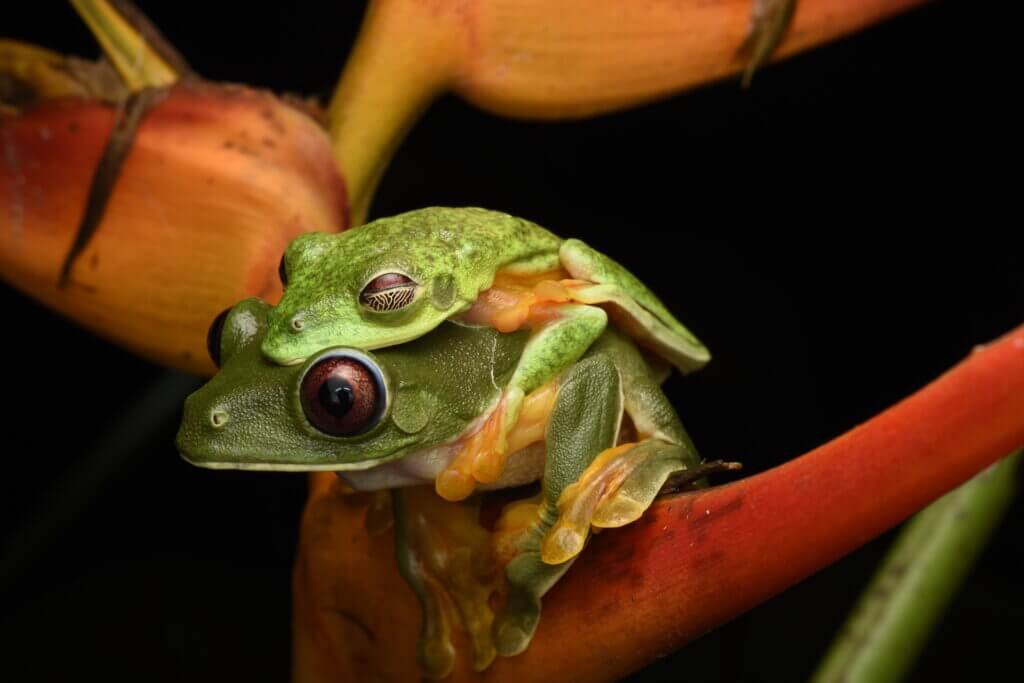
Health Risks Associated with Pet Alligators
Potential Zoonotic Diseases
Owning a pet alligator comes with the risk of potential zoonotic diseases. Alligators can carry various bacteria and viruses that can be transmitted to humans. Practicing proper hygiene, such as thorough handwashing after handling the alligator or cleaning its enclosure, is essential to minimize the risk of infection. Educating oneself on zoonotic diseases and consulting with a specialized veterinarian are vital steps in ensuring both human and alligator health.
Proper Handling and Hygiene Practices
Handling a pet alligator requires expert knowledge and utmost caution. Improper handling techniques can put both the owner and the alligator at risk of injury. Engaging with the alligator in a way that respects its natural instincts and limitations is crucial. Additionally, maintaining good hygiene practices and using appropriate protective equipment are essential when handling an alligator to prevent potential infections or injuries.
Availability of Specialized Veterinary Care
Proper veterinary care for alligators can be limited in many locations. It is essential to ensure that local veterinarians have the necessary expertise and experience in treating reptiles, specifically alligators. Regular check-ups, addressing potential health concerns, and promptly seeking appropriate veterinary care are crucial aspects of responsible alligator ownership.
Social and Ethical Implications of Owning a Pet Alligator
Impact on Conservation Efforts
Keeping a wild animal like an alligator as a pet raises significant concerns from a conservation standpoint. Alligators play a vital role in ecosystem balance, and removing them from their natural habitat can disrupt this delicate equilibrium. Supporting conservation efforts through responsible tourism, donations to wildlife organizations, and education about the importance of preserving natural habitats can help mitigate the negative impact of owning alligators as pets.
Education and Misconceptions
Owning an alligator as a pet can contribute positively to education and dispelling misconceptions surrounding these creatures. By engaging with the public and sharing knowledge about alligator behavior, natural habitats, and conservation efforts, owners can help create awareness and foster appreciation for alligators. Educating others can promote responsible ownership practices and help address the misconception that owning an alligator is safe or suitable for most individuals.
Ethical Considerations for Keeping a Wild Animal
Ethics play a central role in the decision to own a pet alligator. The captivity of wild animals is a contentious topic, with varying opinions on the ethical implications. It is vital to critically examine whether keeping a wild animal like an alligator aligns with responsible and compassionate treatment of animals. Considering the potential risks, challenges, and the alligator’s overall well-being is crucial in making an ethical choice.
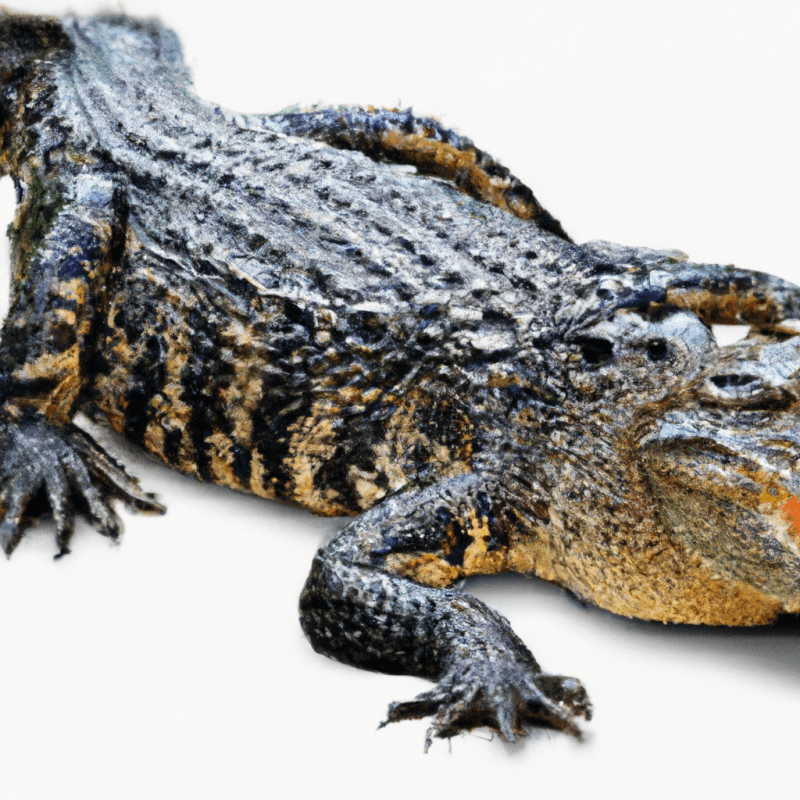
Alternatives to Owning Alligators as Pets
Visiting Reptile Sanctuaries or Zoos
For individuals fascinated by alligators and other exotic reptiles, visiting reputable reptile sanctuaries, zoos, and educational centers provides an opportunity to learn about these creatures without the responsibilities and risks of ownership. These establishments often have professionals who can provide valuable insights, fostering a deeper understanding and appreciation for these incredible animals.
Volunteering or Supporting Wildlife Conservation Organizations
An alternative way to engage with and support alligators and wildlife conservation is to volunteer or support wildlife conservation organizations. These organizations work tirelessly to protect and preserve alligators and their natural habitats. Volunteering allows individuals to contribute their time and skills toward conservation efforts, making a tangible difference in the lives of these magnificent creatures.
Adopting Less Dangerous Reptile Species as Pets
For reptile enthusiasts looking for a pet with less risk and challenges, there are numerous other reptile species that make suitable and safer companions. Species such as turtles, lizards, or snakes that are bred in captivity and have long-established domestication potential are better suited for home environments. Adopting these reptiles from rescue centers or reputable breeders ensures responsible pet ownership while still enjoying the fascinating world of reptiles.
Conclusion
Weighing the risks and rewards of owning a pet alligator is a critical step in making an informed decision. The challenges and potential dangers associated with alligator ownership, coupled with the possible negative impact on conservation efforts and ethical considerations, should be carefully considered. By exploring alternatives such as visiting sanctuaries, supporting conservation organizations, or adopting safer reptile species, individuals can fulfill their fascination with reptiles while prioritizing the well-being and preservation of these remarkable creatures.
